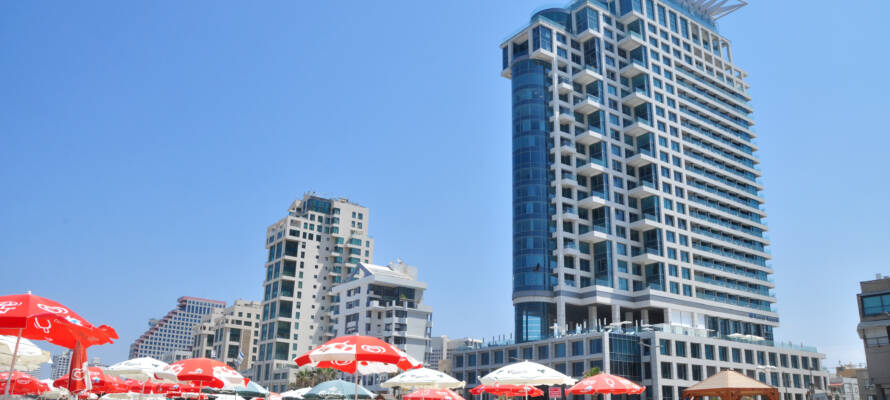Shula Giladi was forced to abandon both her home of the last 55 years and her business.
By Troy O. Fritzhand, The Algemeiner
Bringing a sense of normalcy during times of war can be tough, particularly for the more than 100,000 evacuees from Israel’s north and south living in hotels since the outbreak of war with Hamas in October. Shula Giladi, 70, from Moshav Shtula in northern Israel, is one of those finding light in these dark times.
Forced from her home on the Lebanese border due to the intense security risk from Hezbollah rocket fire, Giladi and members of her community have been living at the Royal Beach Hotel in Tel Aviv, a property of the Israeli hotel chain Isrotel, which has hosted thousands of evacuees in their properties across the country.
Giladi told The Algemeiner that before the war, which erupted with Hamas’ Oct. 7 cross-border raid into southern Israel from Gaza, she was running a successful culinary business in her hometown called Shula Mastula, catering traditional kosher Kurdish food to visitors from Israel and abroad. She served her food fresh from her garden while singing traditional songs and telling stories about her life. “I love my kitchen; I love people — I know how to interact with them,” she said, describing her passion for the business.
However, when the war broke out, Giladi was forced to abandon both her home of the last 55 years and her business, bringing her to Tel Aviv where she has been living ever since. This was of course not easy, she said, remarking that “three months away from home is not simple.”
Conflict for Giladi, though, was not new, as she had been living for decades near the contentious Israel-Lebanon border, where the presence of soldiers and the potential for war was the norm. “Forever, our view was the soldiers. The soldiers are a part of life,” she said.
Fighting between Israel and Hezbollah, the Iran-backed terror group that wields significant influence in Lebanon has intensified along the border since the eruption of conflict in Hamas-ruled Gaza, forcing Israelis to leave their homes under threat of rocket fire.
As the weeks passed since evacuating, Giladi explained, “I had to return to myself and a feeling of home. It was hard to just think about the war.” To make that a reality, the staff at the Royal Beach allowed her to set up a pop-up shop, selling the food she had been making for so many years at her home in Shtula.
The current arrangement allows Giladi to cook dishes from the hotel’s kitchen such as kubeh soup, stuffed grape leaves, beef meatballs, and special pickles, among others to those eager to dine or bring home food for the weekend. Open on Thursdays from 11 am to 3 pm and Fridays from 9 am to 1 pm, she charges 25-30 NIS (about $6.50-$8.00) per dish, giving her the ability to earn a living even though her business cannot currently operate.
“I want to thank Isrotel and the hotel for giving me the ability to earn … All they can do to help they have done,” she said. “I feel it and all the other evacuees feel it … We really feel at home.”
According to the hotel’s head chef, Eitan Mizrachi, the shop has been a huge hit. “The pilot sold out every dish. People came and bought and said how good and special the food was,” he said. “It’s very tasty — if it wasn’t it would [still] be there. The food is also so pretty.”
Giladi is grateful to those who come. “Which country gives such a big hug to its citizens?” she said. “I do not have any words.”
Still, Giladi and the members of her community are ready to return home. “My whole life is there,” she said. “Everyone is ready and waiting.”
